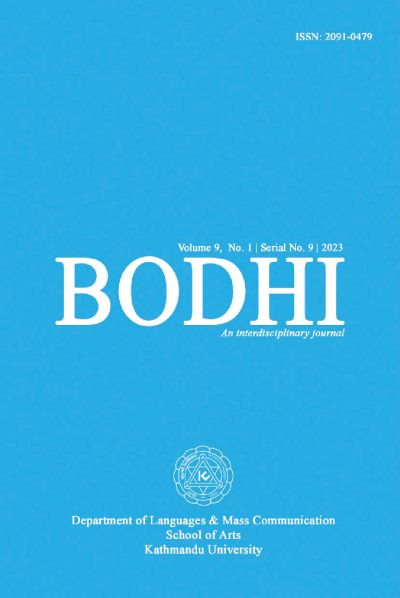An Economic Model of Media Ethics
DOI:
https://doi.org/10.3126/bodhi.v9i1.61860Keywords:
Ethics, economics, media, news, externality, public good, demand, supply, libertarian paternalismAbstract
Ethics and economic profits are considered to be trade-offs to one another. Akin to other disciplines, private media face the same dilemma. Pursuing more economic profit through increased viewership, advertising rates, or other practices usually comes at the cost of diminished ethical compliance. However, many studies highlight the importance of ethical guidelines in increasing revenues and profits in media organizations. This article aims to reconcile previous scholarship on the subject and develop an economic model of media ethics. The model is based on the literature and methodology of public economics, particularly that of public goods and externalities. It predicts that private media firms, when left to the perfectly competitive market, produce a greater quantity of news that may not be socially desirable and is of low quality and poor ethical compliance. When the social cost of producing ethical and quality media products is considered, the revenue of the private firms decreases, thereby suggesting an inverse relationship between ethical compliance and profits. This demands a case for libertarian paternalism, nudges, or incentives to restore private firms to the socially optimal equilibrium to ensure independent, ethical, free, and sustainable media.
Downloads
Downloads
Published
How to Cite
Issue
Section
License
© Department of Languages and Mass Communication, School of Arts, Kathmandu University, Nepal




